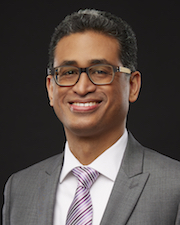Poll: Majority of Adults Support Some Form of School Vouchers
Political ideology and religion shape public opinion on vouchers, a new CPRE policy brief finds.
Jeff Frantz (215) 898-3269 | frantzj@upenn.edu
*Note for TV and radio: The University of Pennsylvania has an on-campus ISDN line and ready access to a satellite uplink facility with live-shot capability.
March 22, 2018 — More than half of American adults favor some form of school vouchers, according to a 2017 poll released this month in a new policy brief from the Consortium for Policy Research in Education (CPRE).
The poll — designed by Rand Quinn, of the University of Pennsylvania Graduate School of Education, and Tina Cheuk, of Stanford University’s Graduate School of Education — was conducted by YouGov in April 2017, two months after voucher supporter Betsy DeVos was confirmed as Secretary of Education and soon after the Trump administration’s proposed 2018 budget called for $250 million for the development and evaluation of voucher programs.

Among the findings:
- Adults who identify as liberal are more opposed to school vouchers than those who identify as conservative.
- Adults who claim that religion is important to their life are much more supportive of school vouchers than those who do not.
- Adults with at least a 4-year college degree are more opposed to vouchers than adults without one.
- Adults with family incomes between $30,000 and $100,000 are less supportive of vouchers than both adults with less family income and adults with more family income.
- Black and Hispanic adults favor school vouchers slightly more than White adults — particularly publicly-funded vouchers targeting students from low-income households.
The findings come as the Trump administration again proposes increasing federal money spent on school choice options, actualized in school vouchers and other reform mechanisms. The public debate surrounding school vouchers continues to outpace research on outcomes on their use, which is far from conclusive. Recent studies, for example, have found vouchers do not improve academic achievement, but they may improve graduation rates and they may provide a greater sense of school safety and satisfaction among parents.
“In our current political landscape where the divide is growing among partisans, the role of partisanship may be an increasingly important factor in eliciting support for education policies such as school vouchers,” Cheuk said. “We hope these survey findings can help policymakers understand the diversity of views on vouchers and how to navigate public opinion on this type of reform.”
